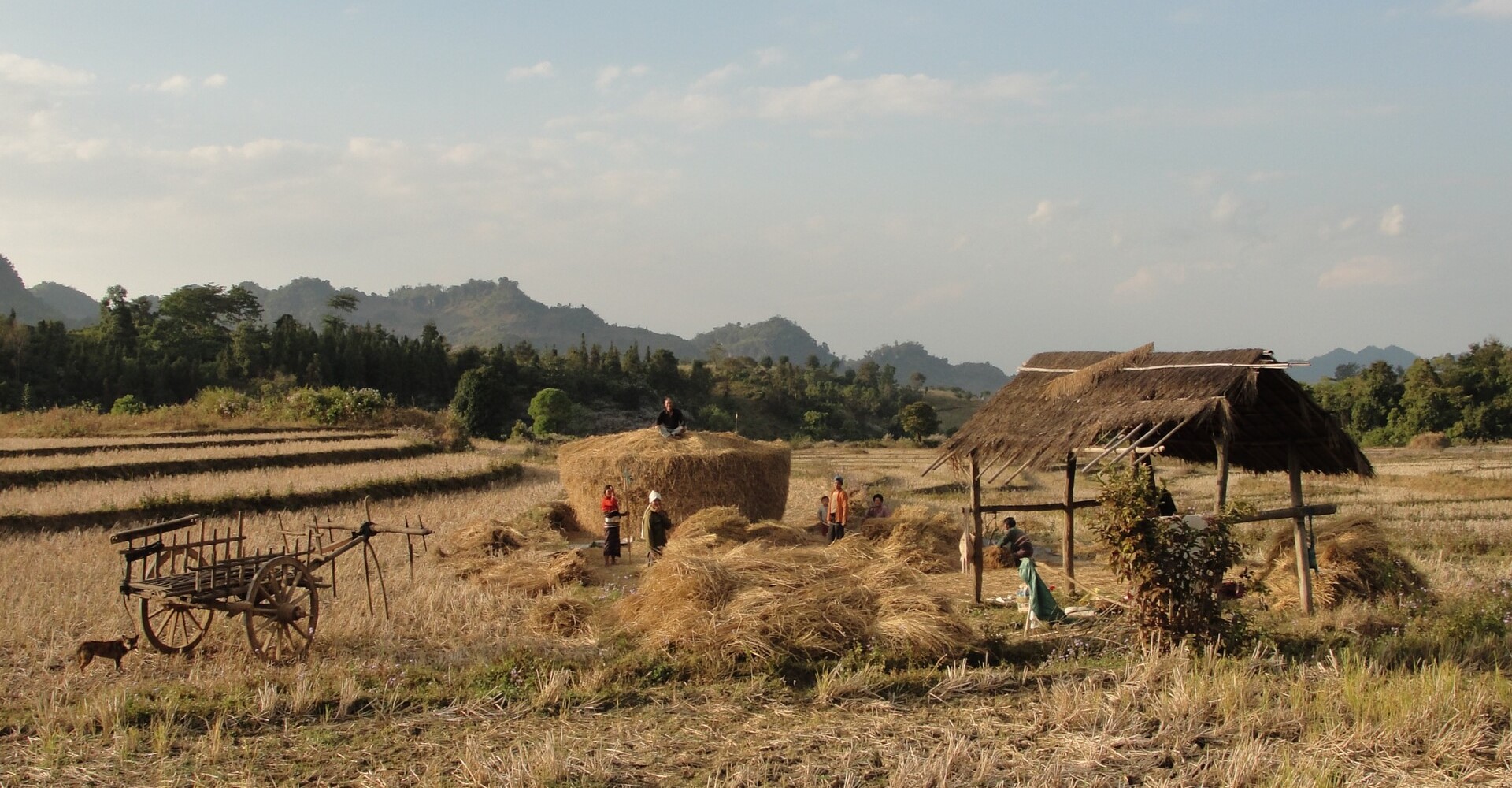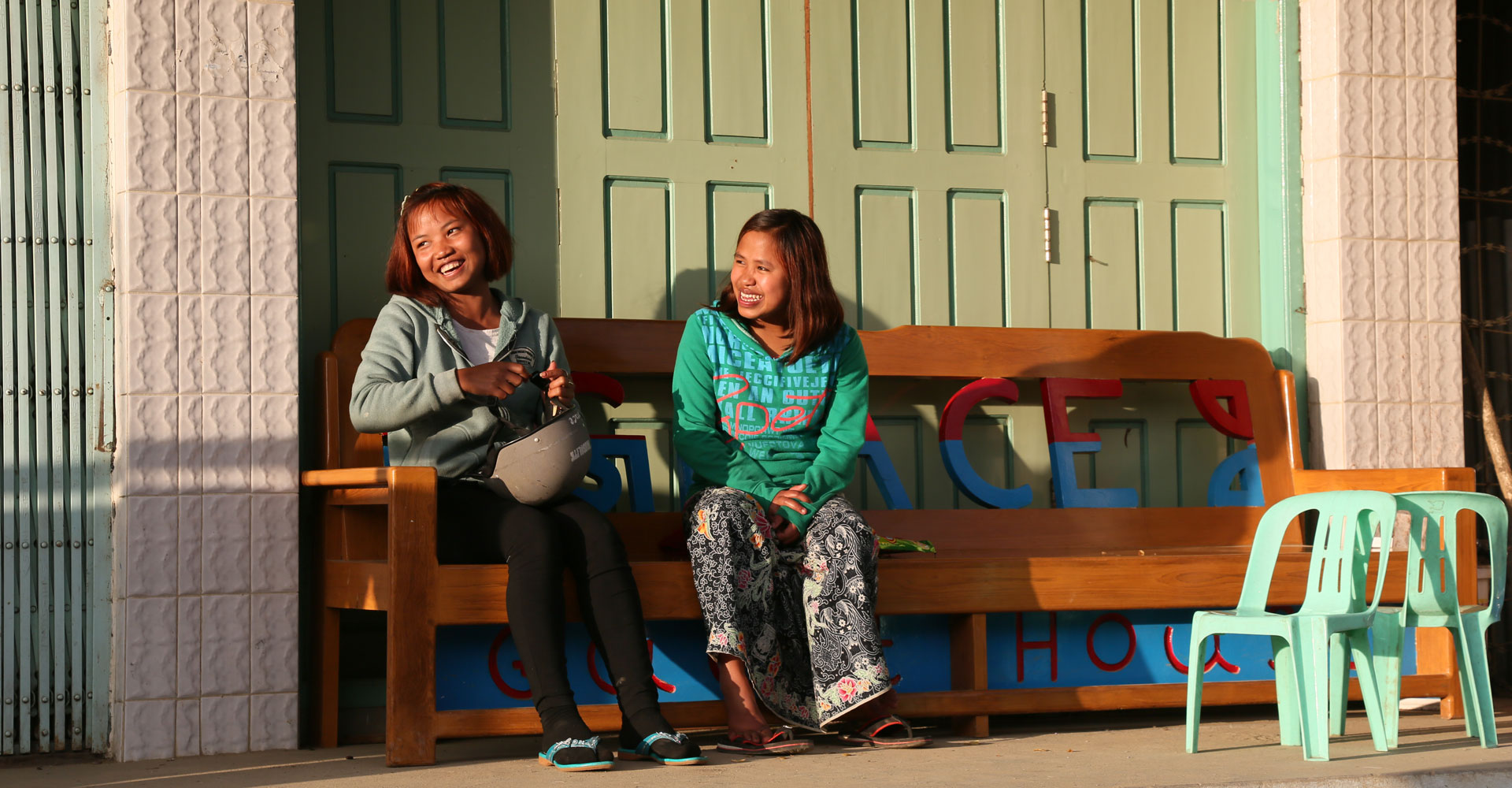Myanmar: The drug epidemic in Rakhine State

BY KYAW LIN FOR DEBATES INDÍGENAS
In recent decades, the country has become a major producer of yaba, a synthetic drug distributed in pills easily available throughout the country. Rakhine State has now been transformed into one of the major hubs for drug transit in the country and is living through a drug addiction crisis. Meanwhile drug lords pay corrupt authorities to facilitate their business and use money made from drug trafficking to buy property in all major cities of the state.
Since the Burmese military (Tatmadaw) seized power under a coup in February 2022, drug production in Myanmar has increased. A large proportion of the drug resources in the country comes from the Golden Triangle, an area where Myanmar's Shan State meets Laos and Thailand.
Shan State, inhabited by Indigenous Shan, Wa, Palaung, Lahu and Akha has a long history of being one of the world’s opium (and heroin) repositories and in the last two decades it has also become one of the world centres of yaba –or WY (methamphetamine)– production. Meanwhile, Rakhine State acts as both a major export hub and a market for sale of the drug. This has meant that in the major cities and towns in Rakhine State, which have been suffering from the economic effects in the wake of Covid-19 and military coup, drug problems and the knock-on effects on society are increasing.
Movement of drugs within the country
In Rakhine State the climate and topography doesn’t allow for the cultivation of poppies, thus opium, heroin or laudanum arrives in the region largely from Shan State, where the climate and topography suits the plant. Drug shipments arrive in the region via Myanmar’s road networks and water ways. Drugs must pass through multiple checkpoints in territories controlled by both the Tatmadaw and different Ethnic Armed Organizations (EAOs) that control various enclaves around the country. Those involved in drug trafficking bribe soldiers at these checkpoints. Occasionally, shipments are stopped and people are arrested but this is largely for the sake of public relations on the part of authorities.
Drug smuggling across international borders is also a common activity. For example, Maungdaw is a frontier town in Rakhine State’s extreme north, close to the border with Bangladesh, and is also the main through point for drugs entering Bangladesh from Myanmar and vice versa. Traffickers moving drugs either into Bangladesh or Rakhine State are sometimes caught by Tatmadaw officials operating border checkpoints.
There have been instances where border officials have detained people involved in smuggling, seized the drug shipment and held the cargo for ransom. Officials have demanded sums of money in order to release the drugs and the people. If the ransom is paid, the individual involved in the smuggling will be taken off government blacklists for a period of time and be protected from arrest.
Khaing Kaung San, an activist and director of the Wunlet Foundation, an organization focused on equality in Myanmar explains: "Drugs coming from nothern Myanmar pass through border crossings and into Bangladesh, but later they are found in Sittwe [the capital of Rakhine state]. This is a sign that local authorities are involved in the drugs trade in various ways and that they accept bribes and remain silent. Another drop off point for large amounts of drugs are the internally displaced population camps where Rohingya minority are located, in the area to the west of Sittwe.”
Khaing Kaung San sees that the drug-use problem is especially prevalent among students: “The SAC (State Administrative Council, current military junta) are ignoring these issues because when young people are using drugs, they are not interested in politics and the revolution. Not only are people using drugs directly (in its original form) in Rakhine State, in the betel nut (stimulant drug legal in Myanmar) shops, but they also mix-in synthetic drugs, such as yaba, in order to attract consumers”.
Drug trade, corruption and land monopolization
During different periods of the military regime in Myanmar it has been declared that drug production was to be eliminated from the country. However, in reality, during these periods, the Burmese military and drug lords always coexisted and mutually profited from drug production and trade.
The same remains true today. Using their wealth and taking advantage of the mass-spread corruption, drug traders influence state law enforcement, who, in some circumstances, are bribed and partake in drug trafficking. Then and now, profits from the drug business are often used to build pagodas and charitable donations are made to religious orders. This serves to cleanse what is seen in Buddhism as morally bad behavior and assuages guilt.
In Rakhine State, money from drug trafficking is also often invested in real estate, with drug dealers buying huge plots of land in cities such as Sittwe, Kyuaktaw, Mrauk Oo, Mrongrbra, Rethedaung, Buithidaung and Maungdaw, which contributes to the problem of landlessness amongst the poor who cannot afford to buy land with their meagre incomes, or even afford rent.
Recently, over 400 people were evicted from a cemetery area in Sittwe on the orders of U Hla Thein, the Rakhine State Attorney General. It is alleged that the land close to where the homeless people were staying was bought by businessmen connected to the drug trade who intend to develop the land for profit.
According to the founding director of the Rakhine Ethnic Congress (REC): "I have heard that some businessmen are investing in the drug trade behind the scenes. Because of their greed, people's future is in shambles. And money laundering is also hitting our society. Just as some of the wealthy are involved in this lucrative business, so are some of the authorities.”
Failure of the government to address the drug crisis
According to Tun Win, a former Rakhine State Member of Parliament for the town of Kyuaktaw in the northern part of Rakhine state: "Rakhine faced conflicts between armed groups and all sections of society fell due to the Covid-19 crisis where many businesses were washed away in the many difficulties. The informal economy grows when the formal economy collapses. Drugs are now readily available around us and many young people are exposed to it. Young people around us are using the WY. Some people even inject it into their veins. If we need something to buy fish and vegetables, we go to the market, but if we want to get drugs we can get it delivered to the home without having to go shopping. This is a terrible sign of our society.”
In Rakhine State, the United League of Arakan, a political force affiliated with the Arakan Army and the SAC, are competing politically for control. This contributes to the limited law enforcement situation, specifically when it comes to the fight against drug trafficking. Also, due to prevalent corruption, those law enforcement officers who do attempt to pursue an anti-drug policy are in short supply in comparison to the need to tackle the large scale of the problem.
“Every state government is trying to solve this problem [drug trafficking] in their own way. But what they do is cut only the tips of the branches, without the main stem –the root of the problem is not touched–. They are only arresting drug users and [petty] drug dealers. The drug lords behind it are still untouched. As soon as they hear the news of the arrests, they look for a replacement to sell the drugs. Therefore, if the SAC or ULA wants to tackle this drug problem, they need to be bold and decisive. To solve the drug problems I think we should make educational programs and job opportunities for young people so that they can earn money", Tun Win said.
Drug use among minors
Meanwhile, the problem has made its way down the age bracket, not only affecting youth, but minors as well, and schools are now struggling to cope with a drug use problem. A headmaster from a school in Sittwe describes the problem: "Currently, most parents come to our school to discuss the issue of drug use. They want to keep their children away from drugs. Most students in the Sittwe area are now addicted to drugs. We do not know where these drugs come from. But one thing is for sure, there are a lot of drugs in our area”.
Due to the levels of addiction, youth gangs are committing crimes to feed their habit. A contact in the Rakhine drug department confirmed that in the past few months over 1 million yaba pills had been seized and over 30,000 people arrested on drug related charges.
A resident of Sittwe, Maung Than Zaw (not his real name), describes his own experience with drugs: "Drugs flow in our area which is not good for anything. Many young students are victims of drugs and are the bane of our society. I have seen some of my friends, who were very bright when they were young students, but after they started using drugs their educated ways were lost and some are now hiding to avoid police arrest. Their entire future is lost”.
In other circumstances, headmasters from schools have warned that students are taking WY in order to stay up all night as a study aid, as one teacher explains: “Firstly, they take drugs as it increases energy and the ability to stay up and work throughout the night, and to do many tasks without getting tired; but later their mental and physical state deteriorates, and they acquire shortness of breath and bad attitude”.
Possible solutions
In Rakhine State, drug trafficking is increasing as is the level of addiction. The problem has now permeated the schooling system where children as young as 14 years old are developing drug problems. Meanwhile, drug dealers and associates linked to various businesses are profiting greatly from the practice, buying out expanses of land with the profits and building unaffordable homes in locations where mass evictions have taken place.
State government and authorities should be stepping up arrest and seizure activities at the check points and attempting to stem the flow of drugs. The profits gained from drug dealing and trafficking being pumped into property also needs to be monitored. A proper check system which looks into the origin of funding and business links to the drug trade should be enforced to ensure money laundering is not taking place in Rakhine.
Kyaw Lin is a freelance Journalist based in Rahkine State, he has previously written for the DVB Myanmar, Myanmar Now and Mizzima.
Tags: Human rights, Indigenous Debates



